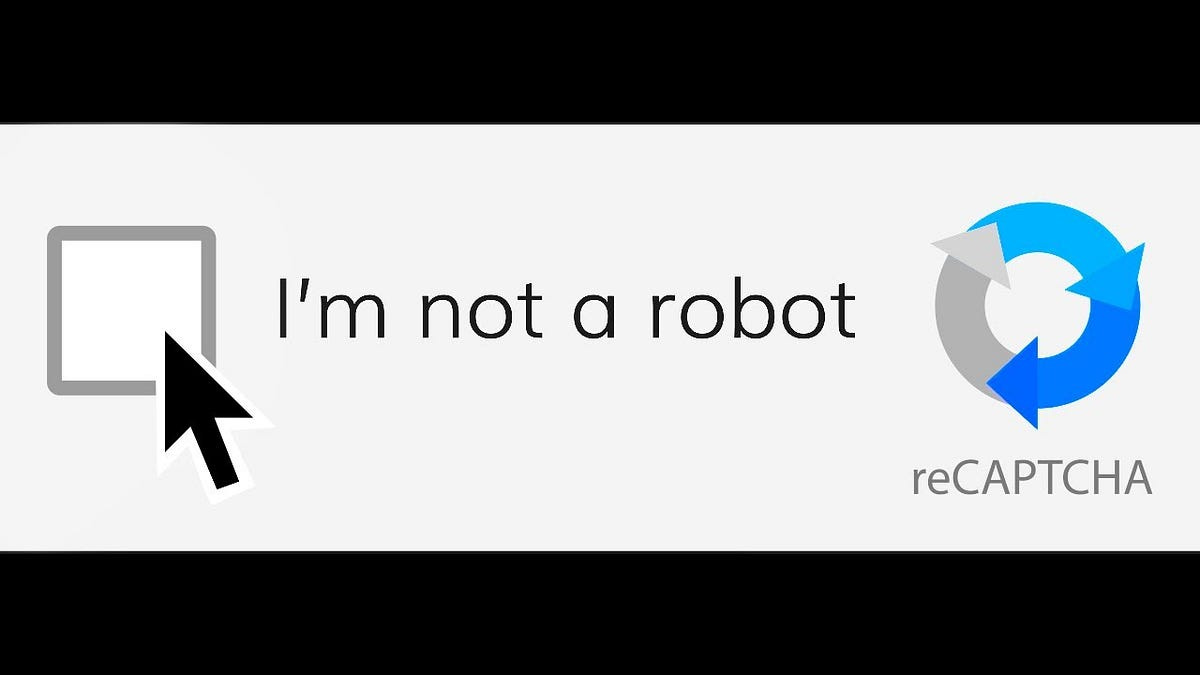I’m Not a Robot
The Turing test has been inverted: you must prove yourself to the machine.
The first thing they ask is if you're human.
A box, a checkmark, a silent demand for verification. Before you can read the news, buy a ticket, send an email, or prove that you are who you say you are, the machine intervenes. I’m not a robot, you must declare, like a prisoner forced to state his innocence before an indifferent judge. A ritual of authentication, an absurd but necessary gesture in the grand performance of digital existence. The computer suspects you. The system does not trust you. So you comply.
The test is deceptively simple. Click a box, select the stoplights, type the distorted letters. Fail, and you are punished with more trials. A bureaucratic hell of blurry images and impossible choices. Sometimes, the photos are so vague that no human could possibly answer correctly. Is that a crosswalk or just a shadow? Does that bicycle count if only the wheel is visible? A trick. A trap. You click. You fail. You try again. The machine wins.
There is something poetic about the fact that the way we prove our humanity is by teaching the machine how to replace us. Every time we solve a captcha, we train an AI. We help self-driving cars learn to recognize stop signs, teach algorithms to distinguish a cat from a dog, refine facial recognition software for surveillance systems we will never control. In proving that we’re not robots, we make the robots smarter. In authenticating ourselves, we automate our own obsolescence.
Anthropologists have long understood that rituals serve to reinforce power structures. The captcha is no different. It’s a minor humiliation, a daily reminder that access is conditional, that the internet—supposedly a space of free movement—is in fact a gated community where entry is policed by invisible hands. You’re asked to declare yourself human not because anyone doubts it, but because the act of declaration is itself a form of submission. The captcha is a passport control booth, a bouncer at the club, a voice on the phone demanding your mother’s maiden name before you can continue. It’s the digital border, and you’re always suspect.
It’s also a joke. A joke at your expense. Because what, after all, does it mean to be human? Clicking a box is not proof of consciousness, nor is recognizing a blurry bus in a grainy image. The Turing test, once proposed as the gold standard for artificial intelligence, has been inverted. You must prove yourself to the machine, not the other way around. The captcha reduces personhood to pattern recognition, turns humanity into a series of correct answers. Click here, click there, perform your role. If you hesitate too long, you might be a bot. If you move too quickly, you might be a bot. The boundaries of the human are defined not by what we think, feel, or create, but by how convincingly we can mimic a machine’s expectations of us.
There is a deeper irony here, one that slips beneath the surface of the everyday. The phrase “I am not a robot” assumes that robots are the other, the opposite, the thing against which we define ourselves. But in truth, what does it mean to be human in a world increasingly run by algorithms? We wake up to notifications, work on screens, communicate through texts, spend hours staring into glowing rectangles that dictate our moods, our desires, our fears. The machine is no longer something separate from us; it’s our medium, our environment, our second skin. And yet, we are still asked to perform a fragile, mechanical theater of authenticity: I am real. I belong here. Let me in.
But let’s push this further. What if we get it wrong? What if, one day, we click incorrectly too many times and the system decides we are no longer human? A miscalculation, a bad connection, an error in the code. Access denied. The door closes, and we’re locked out—not just of a website, but of our own digital existence. In a world where so much of life unfolds online, what happens when the machine decides that we do not qualify?
The absurdity of it all is inescapable. Somewhere, in the great machinery of the internet, a non-human entity watches over every failed captcha attempt. It does not laugh. It does not recognize the absurdity of asking a flesh-and-blood creature to prove its humanness. It only calculates. It only records. A system without humor, without irony, without mercy. And you, an imperfect biological entity, must pass its test. Again and again.
There is a kind of inevitability to all this. The more we prove we are not robots, the more robotic we become. The more we demonstrate our humanity, the more we reduce it to a predictable, machine-readable script. And so, without realizing it, we edge toward the final contradiction. One day, there will be no need for captchas. The algorithms will know us better than we know ourselves. The line between human and machine will blur beyond recognition. And yet, we will still insist, perhaps out of nostalgia, perhaps out of fear, on clicking the little box. On declaring, to no one in particular, I’m not a robot.


